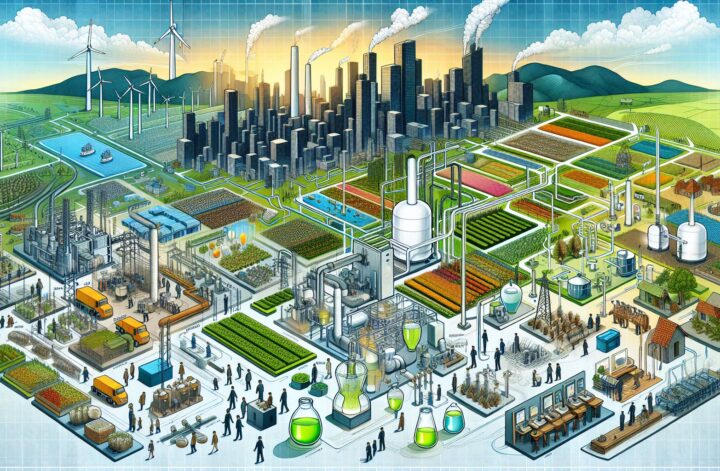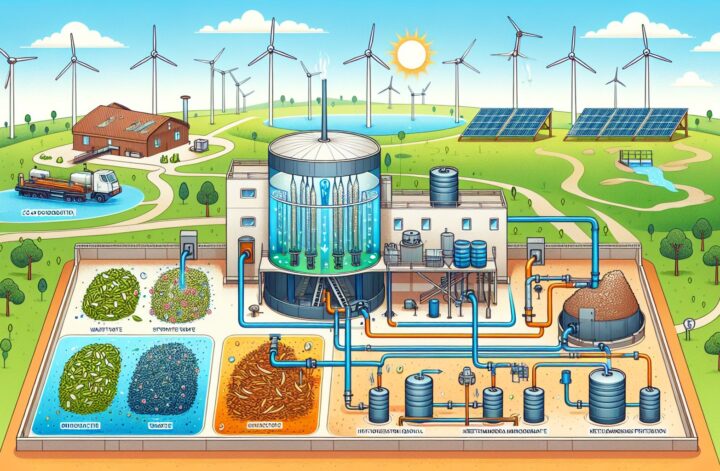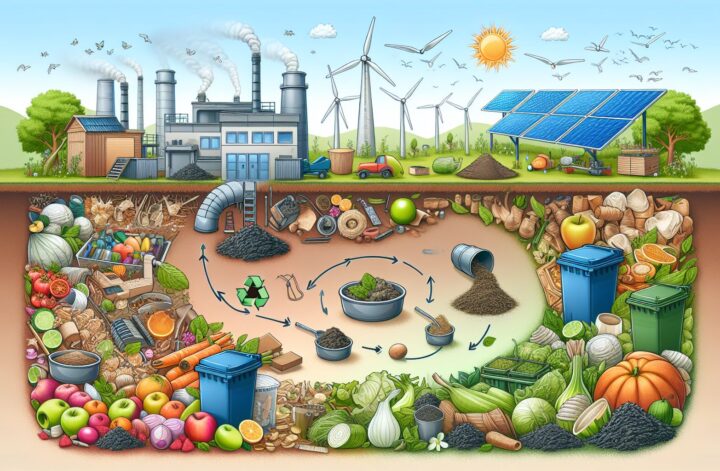In an era marred by the ravages of climate change, conversations around sustainable, renewable, and green energy have become increasingly critical—ultimately leading us to the potential of biogas production. Biogas, a natural by-product of the decomposition of organic matter, presents a crucial renewable alternative to traditional fossil fuels. This article explores the process, benefits, and implications of biogas production, thereby shining a light onto a sustainable and promising solution to modern energy challenges.
What is Biogas Production?
Biogas production involves the transformation of organic waste into a potent source of energy. This process is a type of anaerobic digestion (the breakdown of organic material in absence of oxygen) conducted by microbes, which leads to the creation of a combustible mix primarily consisting of methane and carbon dioxide¹.
The Mechanism behind Biogas Production
The biogas production process mainly includes four stages: Hydrolysis, Acidogenesis, Acetogenesis, and Methanogenesis.
- Hydrolysis is the initial phase where complex organic compounds such as carbohydrates, proteins, and fats are broken down into simple sugars, amino acids, and fatty acids respectively.
- Following hydrolysis, the Acidogenesis stage involves the conversion of these simple compounds into volatile fatty acids and other by-products.
- The Acetogenesis phase further breaks down these products into a potent mixture of hydrogen, carbon dioxide, and acetic acid.
- The final stage is Methanogenesis, in which methane-producing bacteria (methanogens) convert the previous compounds into methane and carbon dioxide, the primary components of biogas[^2].
^²
Biogas Upgrading and Its Many Uses
While raw biogas is rich in methane, it also contains other gases like carbon dioxide, hydrogen sulfide, and trace elements that restrict its use in certain applications. Biogas upgrading is an integral part of the process which involves purifying and enriching the gas to increase the concentration of methane, rendering it suitable for use as a conventional natural gas substitute³.
Biogas is a versatile player in the field of alternative energy sources. It can be used for various purposes, such as electricity and heat production in combined heat and power (CHP) systems, or as vehicle fuel once it’s further purified. It’s also often used for cooking and heating, particularly in rural areas where access to conventional energy sources may be limited. Additionally, integrating the biogas system into waste treatment processes can accelerate the waste stabilization and reduction in volatile solids, thereby promoting effective waste management procedures[^4].
^⁴
The Perks of Biogas Production
-
Renewable Energy Source: As biogas is a product of organic waste decomposition, its sources are constantly replenished, making it a reliable and sustainable energy alternative. From agricultural and livestock waste to sewage sludge and food waste, numerous raw materials drive biogas production⁵.
-
Greenhouse gas reduction: Capturing methane through biogas production helps prevent its emission into the atmosphere, contributing to the reduction of greenhouse gas emissions. Methane, a potent greenhouse gas, has a global warming potential 21 times higher than carbon dioxide[^6].
-
Waste Management: Biogas production from organic waste aids in organic waste treatment, contributing to sludge stabilization and biosolids management. The solid byproduct (digestate) can serve as a nutrient-rich fertilizer, thus achieving a circular system of energy and nutrient recovery[^7].
-
Energy saving: The energy derived from biogas can replace traditional fossil fuels used for cooking, heating, and electricity
Conclusion
The increasing world population and the consequent rise in energy demand necessitate the continuous search for alternative sources of energy. Complemented with waste management benefits and the potential to mitigate climate change impacts, biogas production presents a compelling, practical, and sustainable solution to many contemporary issues. Further research and innovation, along with supportive policy frameworks, will likely enhance the application and effectiveness of biogas, bringing us closer to a more sustainable future.




